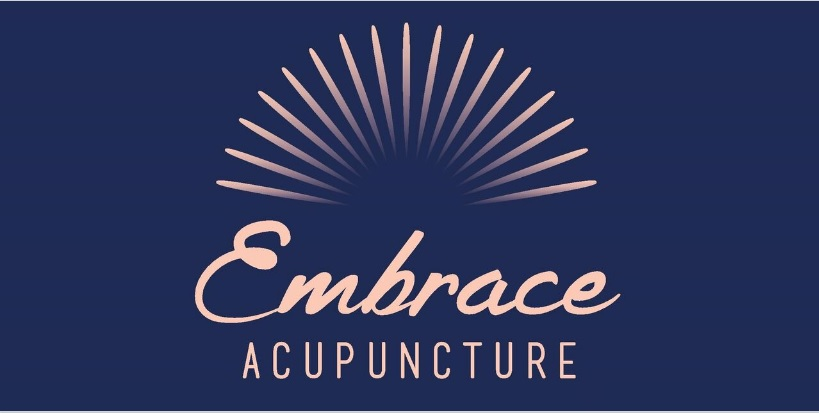Pregnancy, Birth and Post Partum
GROWING A TINY HUMAN ISN’T ALWAYS EASY…
Every pregnancy is unique, bringing its own demands on your body. From morning sickness to labour preparation and postpartum recovery, it's crucial to have the right support.
Acupuncture offers a holistic approach that addresses specific pregnancy ailments, helps prepare your body for labour, and aids in recovery after childbirth. Our clinic specialises in integrating Acupuncture into your prenatal and postnatal care plan, ensuring a smooth, comfortable journey from conception through to motherhood.
If you're looking for supportive, personalised care, we're here to guide you every step of the way.
When can I get Acupuncture during pregnancy & post partum?
At Embrace Acupuncture, we see women at all stages of pregnancy. From the 2-week wait, through all the trimesters, just before birth and post-natally too!
We typically see women:
Weekly through their first trimester
Monthly after that for maintenance & to take care of little niggles
Weekly from 35 weeks for pre-birth Acupuncture
Anytime post birth, with most women seeing us 2-3 weeks post birth for Acupuncture healing
Is Acupuncture safe in pregnancy?
We understand seeing a new health practitioner when you’re pregnant can be scary but rest assured you're in the hands of professionals.
Acupuncture is generally considered safe during pregnancy when performed by a qualified and experienced practitioner.
Our highly trained, nationally registered practitioners provide gentle, yet effective treatments that are helpful during pregnancy.
This ancient Chinese therapy involves inserting thin needles into specific points on the body (away from the uterus) to promote balance and alleviate many conditions, including pregnancy-related discomforts.
So, with the necessary precautions and with our highly skilled practitioners, Acupuncture can be a soothing addition to your prenatal care.
What can Pregnancy Acupuncture help with?
STRESS - A recent Australian study showed women who had Acupuncture throughout their pregnancy had reduced stress & improved mental states
MORNING SICKNESS - This study from Adelaide showed Acupuncture as beneficial for morning sickness or nausea/dry retching in pregnancy. This 2023 review found this also
INSOMNIA - This study shows Acupuncture to be safe and beneficial for insomnia in pregnancy
BACK & PELVIC PAIN - There’s research showing Acupuncture is beneficial for pelvic & back pain
THREATENED MISCARRIAGE - More research is needed but this Randomised Control Trial showed Acupuncture may be helpful
BREECH PRESENTATION - This 2023 review found “evidence that moxibustion before 37 weeks of pregnancy probably reduces the chance of breech presentation at birth and the need for oxytocin use during birth”. This and this review of studies also showed Acupuncture & moxibustion may be helpful for breech presentation. We typically see women for this at 33-35 weeks.
LABOUR EFFICIENCY AND INDUCTION - This 2024 review found Acupuncture to be helpful with labour. We typically see women at 35 weeks for this.
More Pregnancy & Postpartum FAQ’s
-
At Embrace Acupuncture, we prioritise your comfort and well-being above all else. Our approach involves the use of ultra-fine, pain-reducing needles combined with gentle techniques to promote a sense of calm and relaxation.
Our single-use, sterilised needles are exceptionally thin, measuring less than 0.25mm—equivalent to a quarter of a millimeter or approximately three strands of hair in thickness.
After the needles are delicately inserted, any initial discomfort quickly dissipates, allowing you to recline, unwind, and let the healing benefits of acupuncture take effect!
-
This very much depends on what you’d like help with! Your practitioner will make a plan with you at your first appointment.
We find that pregnant women tend to respond quicker to treatments than the general population!
-
Acupuncture and the application of Moxa before 37 weeks has been shown to reduce the chance of breech presentation.
The best time to come in is at 33 - 35 weeks while there is more room for babies to turn. -
We typically see women weekly from 35 weeks to take care of pains and niggles leading up to birth as well as to do gentle ‘cervical ripening’ points that can help with labour efficiency.
We gently up the strength of our treatments as we go along to ensure you feel nourished and ready and labour happens at just the right time. -
Just as babies receive a post birth check up, we love to help our mamas the care they need to smooth their post partum recovery.
We typically see women for insomnia, breast pain or volume issues, aches and pains, poor immunity, low energy, anxiety or night sweats.
Acupuncture is recommended at any time post birth. That said, we typically see women at 8 weeks post birth.
If you need to bring your little one in too, that’s cool by us! -
Here’s heaps of extra info in our pregnancy blogs!
If you're interested in exploring how Acupuncture can be integrated into your prenatal and postnatal care plan, we're here to guide and support you every step of the way.
Let's ensure you receive the care you need for a healthy pregnancy and a robust start to motherhood.


